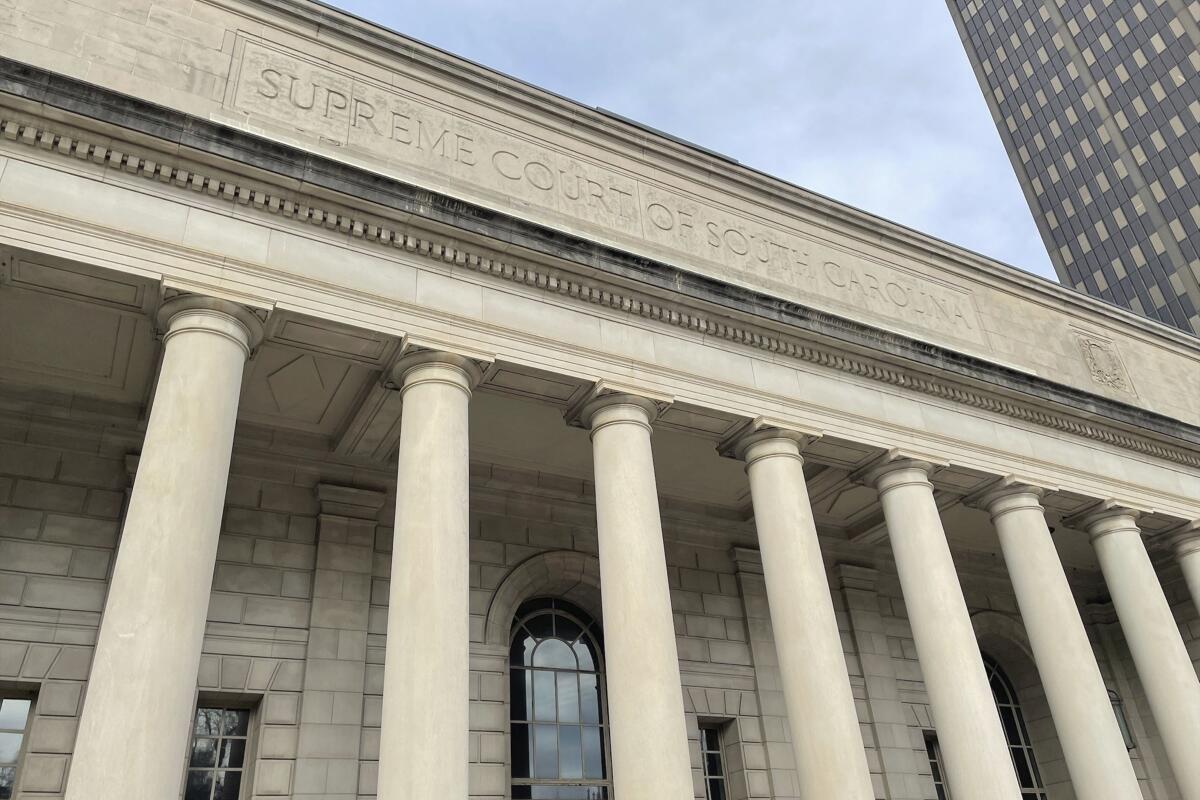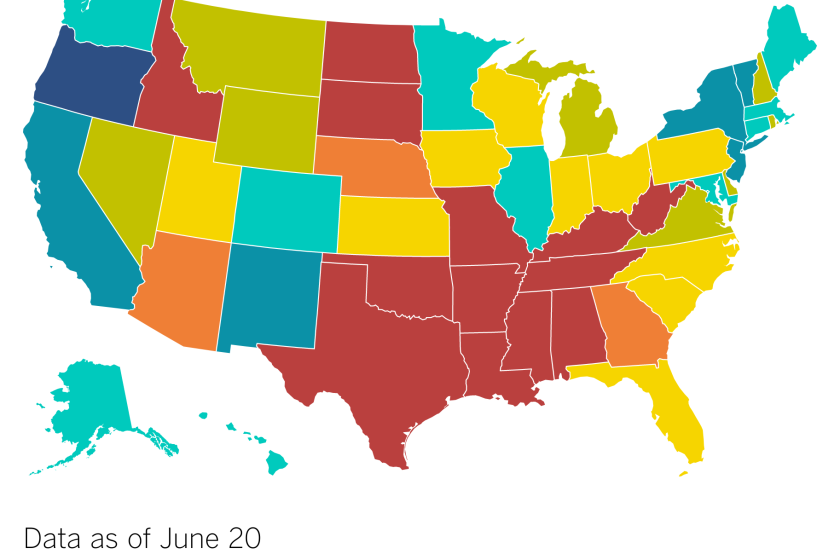South Carolina’s new all-male Supreme Court reverses course on abortion, upholding 6-week ban

- Share via
COLUMBIA, S.C. — South Carolina’s new all-male Supreme Court reversed course on abortion on Wednesday, upholding a ban on most such procedures after about six weeks of pregnancy.
The 4-1 ruling departs from the court’s own decision earlier this year to strike down a similar law.
The continued erosion of legal abortion access across the U.S. South comes after Republican state lawmakers replaced the lone woman on the court, Justice Kaye Hearn.
Writing for the new majority, Justice John Kittredge acknowledged that the 2023 law infringes on “a woman’s right of privacy and bodily autonomy,” but said the state Legislature reasonably determined this time around that those interests don’t outweigh “the interest of the unborn child to live.”
“As a Court, unless we can say that the balance struck by the legislature was unreasonable as a matter of law, we must uphold the Act,” Kittredge wrote.
It was Hearn who wrote the majority’s lead opinion in January striking down the ban. The court ruled then that the law violated the state constitution’s right to privacy.
An abortion provider accuses Beverly Hills of colluding with antiabortion activists and pressuring a landlord to block an all-trimester clinic’s opening.
Hearn then reached the court’s mandatory retirement age, enabling the Republican-dominated Legislature to put Gary Hill on what is now the nation’s only state Supreme Court with an entirely male bench.
With a newly configured Supreme Court, Republican lawmakers enacted a new abortion law in 2023 that they thought would pass muster a second time around. Specifically, the law was crafted to address Justice John Few’s concern, expressed in the January ruling, that lawmakers failed to take into account whether the abortion restrictions were reasonable enough to infringe upon privacy rights in favor of the right to life.
A year after the Supreme Court overturned Roe vs. Wade, leaving abortion decisions to states, where is abortion banned or protected? What comes next?
Abortion providers, including Planned Parenthood South Atlantic, sued again.
Hill joined Wednesday’s majority along with Few, who had previously voted to overturn the 2021 law.
Since the U.S. Supreme Court last year overturned Roe vs. Wade, the 1973 ruling that provided nationwide access to abortion, most GOP-controlled states have enacted or adopted abortion bans of some kind. All have been challenged in court.
More to Read
Get the L.A. Times Politics newsletter
Deeply reported insights into legislation, politics and policy from Sacramento, Washington and beyond. In your inbox twice per week.
You may occasionally receive promotional content from the Los Angeles Times.











